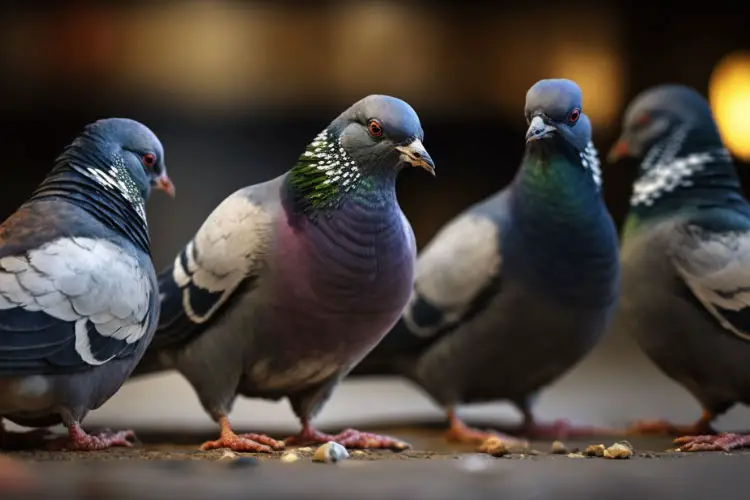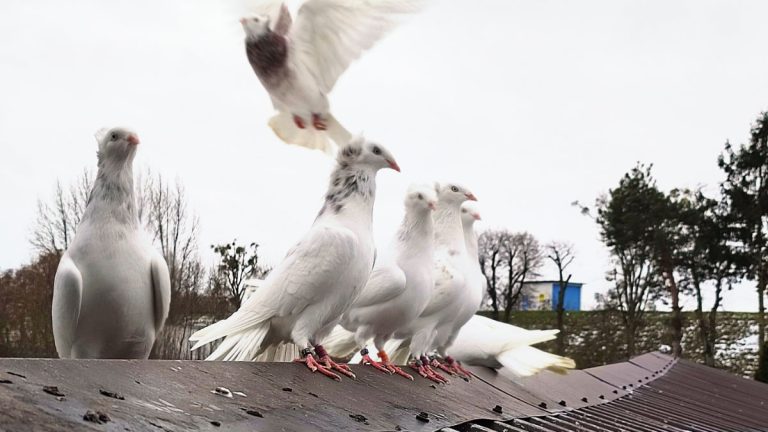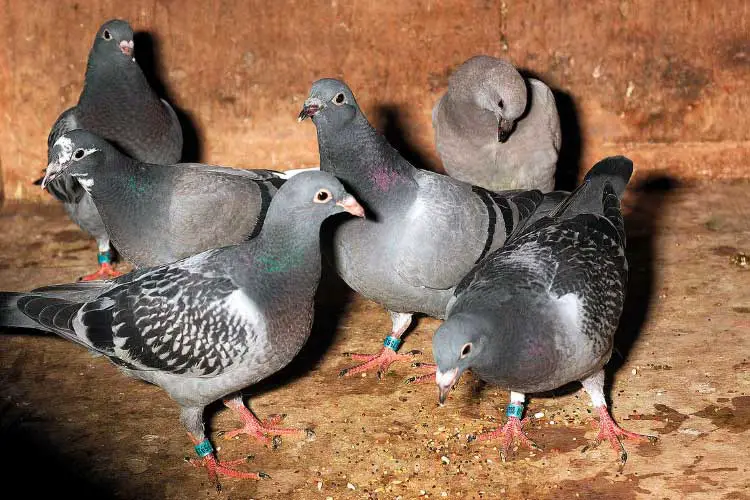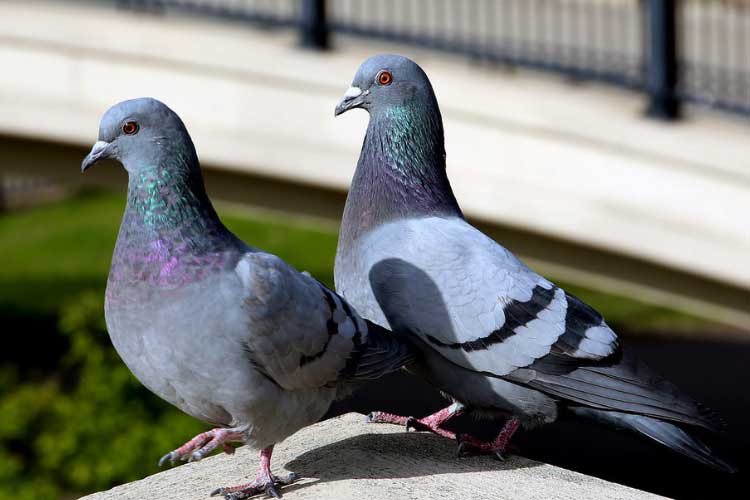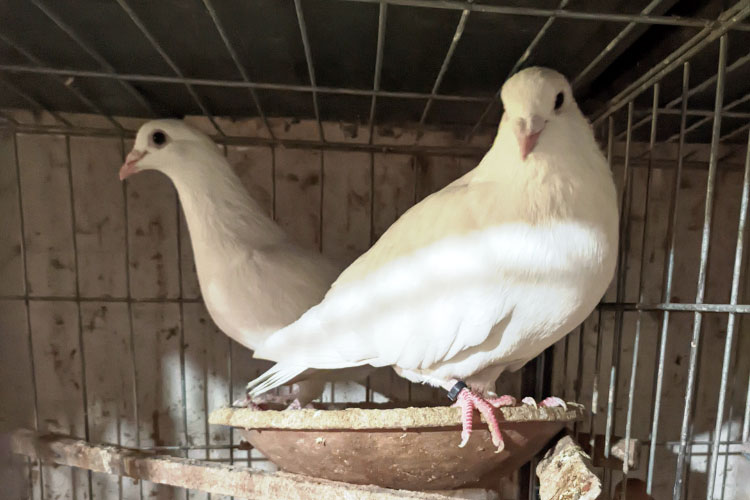Can Pigeons See at Night? The Answer May Surprise You
Have you ever noticed pigeons flying around on rooftops even at night? They move through the dark with what appears to be ease. But what is it that gives them this ability?
Can pigeons see at night? Yes, pigeons can see in the dark, but this doesn’t imply that they have night vision. They can see at night due to their perception of light and their ability for UV vision.
Then again, how much does human eyesight differ from that of pigeons? Well, we’ll cover a lot of fascinating aspects of pigeons’ eyesight, so stay tuned.
Can Pigeons See at Night?
Yes. Despite not being nocturnal birds, pigeons have a distinct advantage when it comes to nighttime navigation. Their eyes are exceptionally sensitive to light, allowing them to see and even fly under the glow of the moon or city lights.
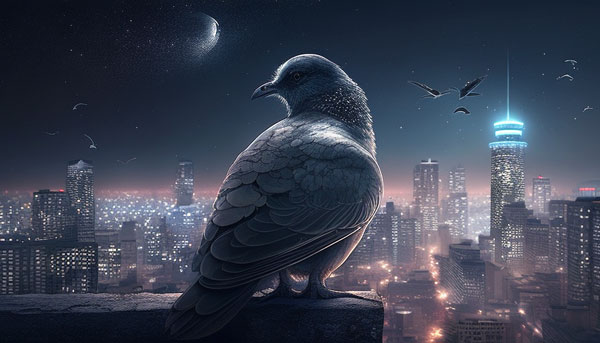
Plus, pigeons can see ultraviolet (UV) light in addition to being sensitive to light. This indicates that they can see items after sunset or before sunrise as long as there is dispersed UV light in the surroundings.
How Do Pigeon and Human Vision Differ?
Similarities and variances between the visual systems of pigeons and humans lead to variances in their visual ability. The following table summarizes them —
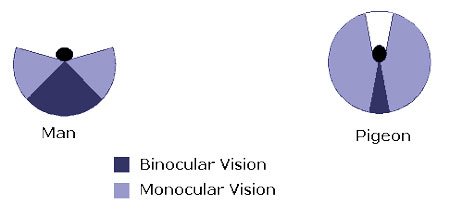
| Difference | Pigeon | Human |
|---|---|---|
| Type of vision | Monocular | Binocular |
| Field of vision | 135-degree arc vertically, 340-degree arc horizontally | Vertically 135-degree. horizontally 180-degree |
| Depth perception | Greater due to head-bobbing movement | Limited |
| Color perception | Pentachromatic (5 channels) | Trichromatic (3 channels) |
| Sensitivity to light | More sensitive to ultraviolet light | Less sensitive to ultraviolet light |
| Infrared light detection | Cannot detect | Cannot detect |
Can Pigeons See Different Colors?
Yes. Pigeons can perceive five different colors, whereas humans are limited to seeing three. This implies they can see colors humans couldn’t even conceive of seeing, such as ultraviolet light.
They also excel at distinguishing between various tones of green. Because of their skill, they can even be frightened by clothing that reflects UV light. But they can’t see infrared light, just like us.
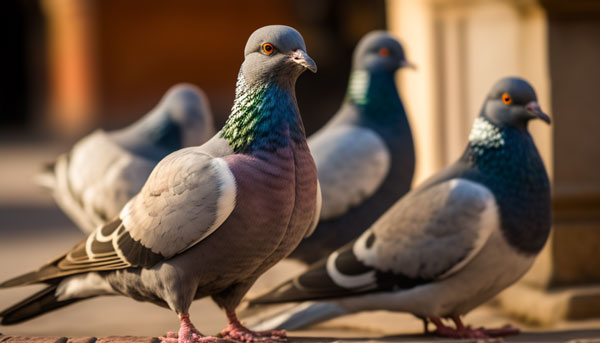
Also, their eyes are quite useful when flying, especially at night. They can determine distances and ensure that they fly safely and without colliding with anything. This unique ability is known as “depth perception.”
Most importantly, pigeons are continually on the lookout for danger. Their eyes let them notice even the slightest change in their surroundings and remain aware of potential hazards, such as predators hiding.
Do Pigeons Fly at Night?
Pigeons do not frequently fly at night, despite what the public thinks. They’re diurnal animals, meaning they’re up during the day and asleep at night.
Besides, pigeons have heightened light sensitivity and the capacity to perceive UV light, though they only tend to fly at night unless it’s unavoidable. For instance, if they feel nervous or afraid, they could abandon their nest and fly to find protection.
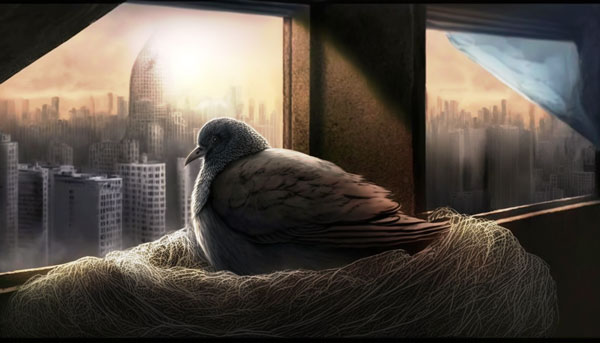
They’re not courageous birds, so they like to stay in enclosed, dark areas, avoiding nighttime flights wherever possible.
Formation Of Pigeon’s Acuity For Target Distance
Pigeon’s eyes has 2 fovea-frontal and lateral. The frontal fovea detects border threats, and the lateral is to process the information properly. Accordingly, the front side fovea helps to track the movements of distant targets.
However, pigeons have a high visual acuity on the lateral fovea. It has been especially acknowledged for target distance. They can make the visual distance difference ranges from 13 to 73 cm.
Apart from these, there is a connection between visual acuity and eye size. Pigeons contain a tectofugal visual system that helps them to prey.
Moreover, they can quickly adapt the frontal task for near distance and the lateral task for far distance.
Do Pigeons Have Night Visions?
No. They have excellent day vision but don’t have clear night vision. So they can’t see through the darkness perfectly. But pigeons have fantastic eyesight, they can even see through ultraviolet light. .
Besides, it’s pretty challenging for them to prey or see in the dark. Yet, they can see if there’s a moon or lights around them. But night lights are harmful to pigeons’ sleep. Lastly, pigeons should sleep at night because they aren’t safe outside at night.
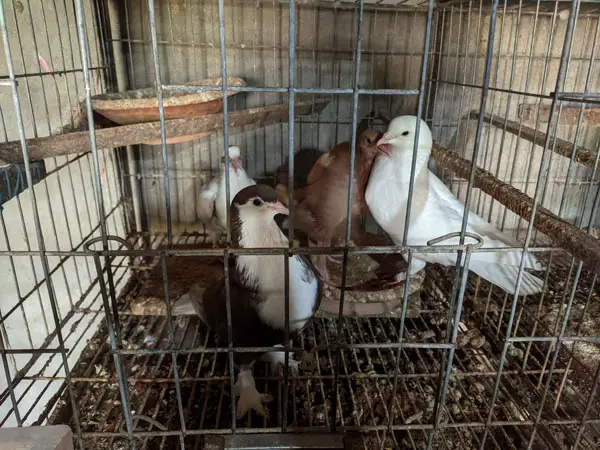
Can I Train Pigeons to Fly in The Dark?
Pigeons are brilliant birds that can learn and even recognize masterpieces like Picasso’s paintings. However, it’s unclear whether you can train them to fly in the dark or not.
Contrary to the widespread belief, teaching pigeons to fly in the dark is a difficult and time-consuming job. These birds are highly sensitive to light, and it’s not in their nature to see in the dark.
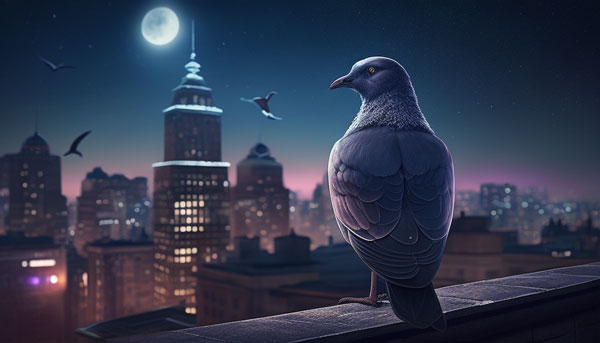
Therefore, training them to fly in the dark requires a great deal of patience, understanding, and care.
What to Do If A Pigeon Is Injured For Low Night Vision?
Sometimes pigeons don’t sleep at their shelter and look for other places to sleep. As pigeons have low night vision, they can be injured or attacked at night outside. If the predators attack a pigeon, they can be in sudden trauma for a long time. In that case,
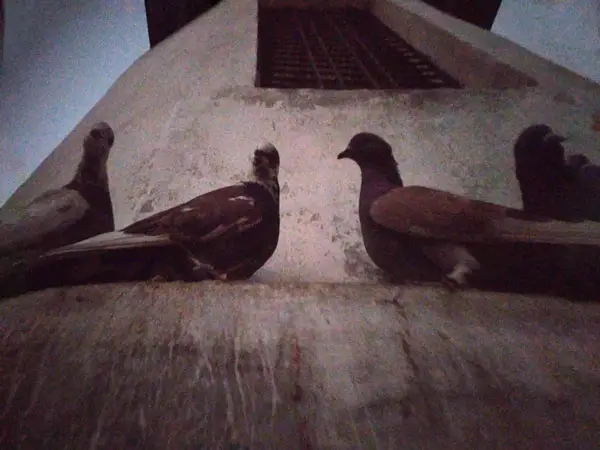
- take a warm cloth and place the injured pigeon on it
- Then check the wound to see whether it’s on their body or not
- Clean the wound with saline or salty water gently
- Keep the pigeon in a warm shelter.
- It’s better to take the pigeon to the vet as soon as possible
FAQs
Read these commonly asked questions to get more information on pigeons’ night vision.
Not all pigeons are sensitive to light. But some pigeons aren’t comfortable around lights because it’s difficult for them to open their eyes. Light pollution can affect their eyesight.
As diurnal birds, pigeons look for comfortable spaces to sleep in at night. They have less activity at night time and prefer to relax.
Conclusion
Though the eyes of pigeons are not completely different from ours, they can see amazingly well at night than us. That’s because their eyes are suited to see in dim light. So, now you know the answer to can pigeons see at night right?
One of the significant reasons is the brightness of the light affects how clearly they can see, as they lack night vision. Plus, the color recognition ability of pigeons is pretty impressive.
